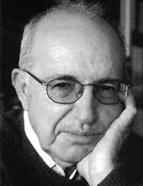

While still a student, Coelho began reading, researching, translating, and systematising information on the Muslim past, which a few years later led to the publication of the four volumes of Portugal na Espanha Árabe [Portugal in Arab Spain] between 1972 and 1975. At the time, this was a groundbreaking revelation — a window offering a perspective beyond official historiography. This perspective had initially been put forward by Alexandre Herculano and, many years later, by David Lopes, but had since been largely overshadowed and marginalised. Through this window one could access Muslim poets, philosophers, geographers, chroniclers, as well as the cultural routes through which this knowledge circulated, all intricately connected to the broader Islamic world. However, the work goes far beyond merely collecting this knowledge and its remnants — though that alone is essential given the lack of historical knowledge of the period. It serves as a foundational framework for systematically revalorising this legacy, which, preserved as an act of resistance, plays a crucial role in fostering a renewed sense of modernity.
Comunas ou Concelhos [Communes or Counties] (1973) appears in this context as another piece in the interpretative framework Coelho pursued. If the Muslim legacy had laid the groundwork for the expansionist vanguard within a context of growing international trade, the municipal realm often served as a space where the bourgeoisie could thrive. Their autonomy from feudal powers created areas of freedom managed by the community of homens bons, who gained recognition based on merit rather than through the Crown. This reality emerged from the assertion of the bourgeoisie in a grassroots process. The interpretative framework was as original and thought-provoking as it was controversial. The fall of the dictatorship provided the conditions for this heated, yet unrestricted, debate to emerge.
